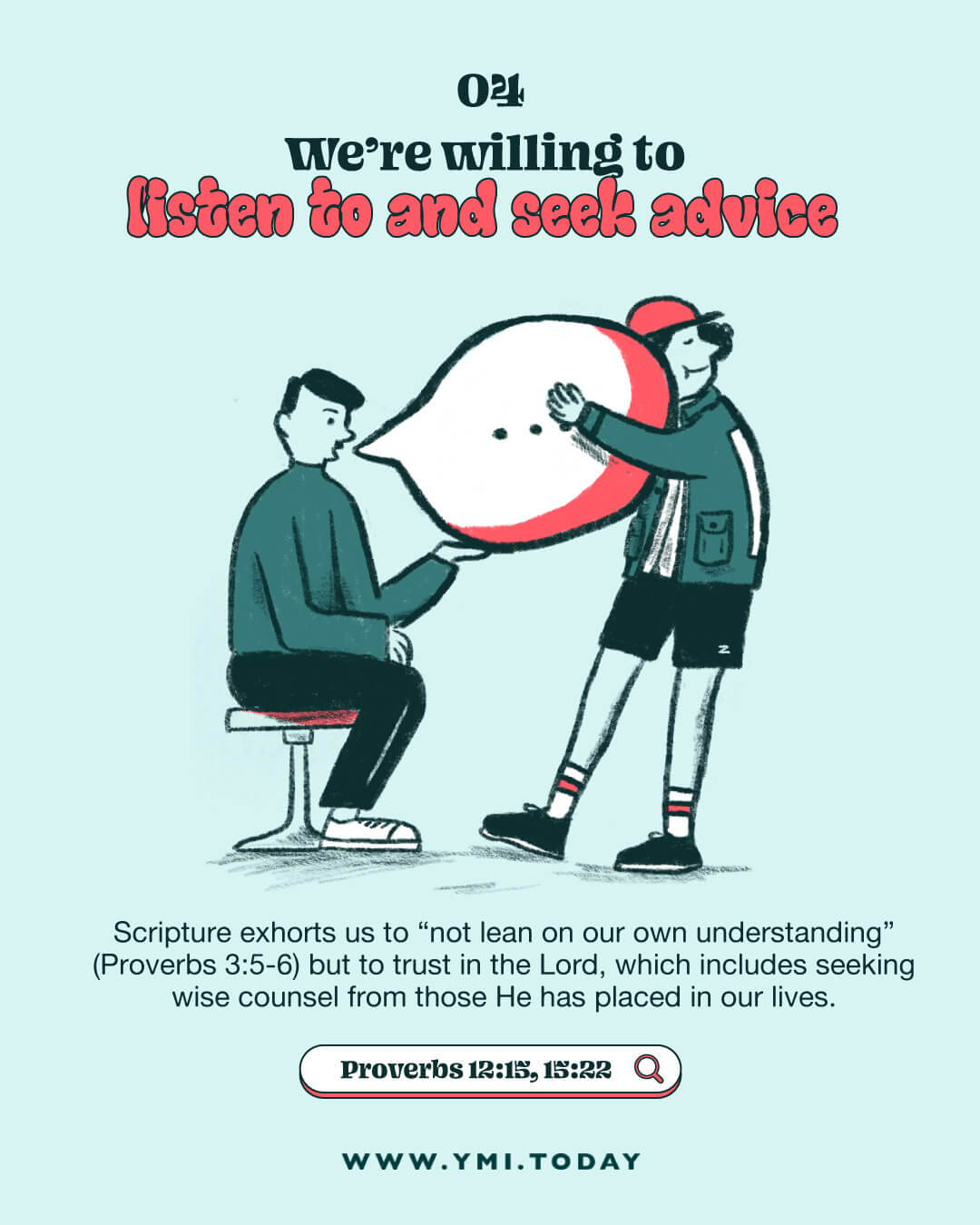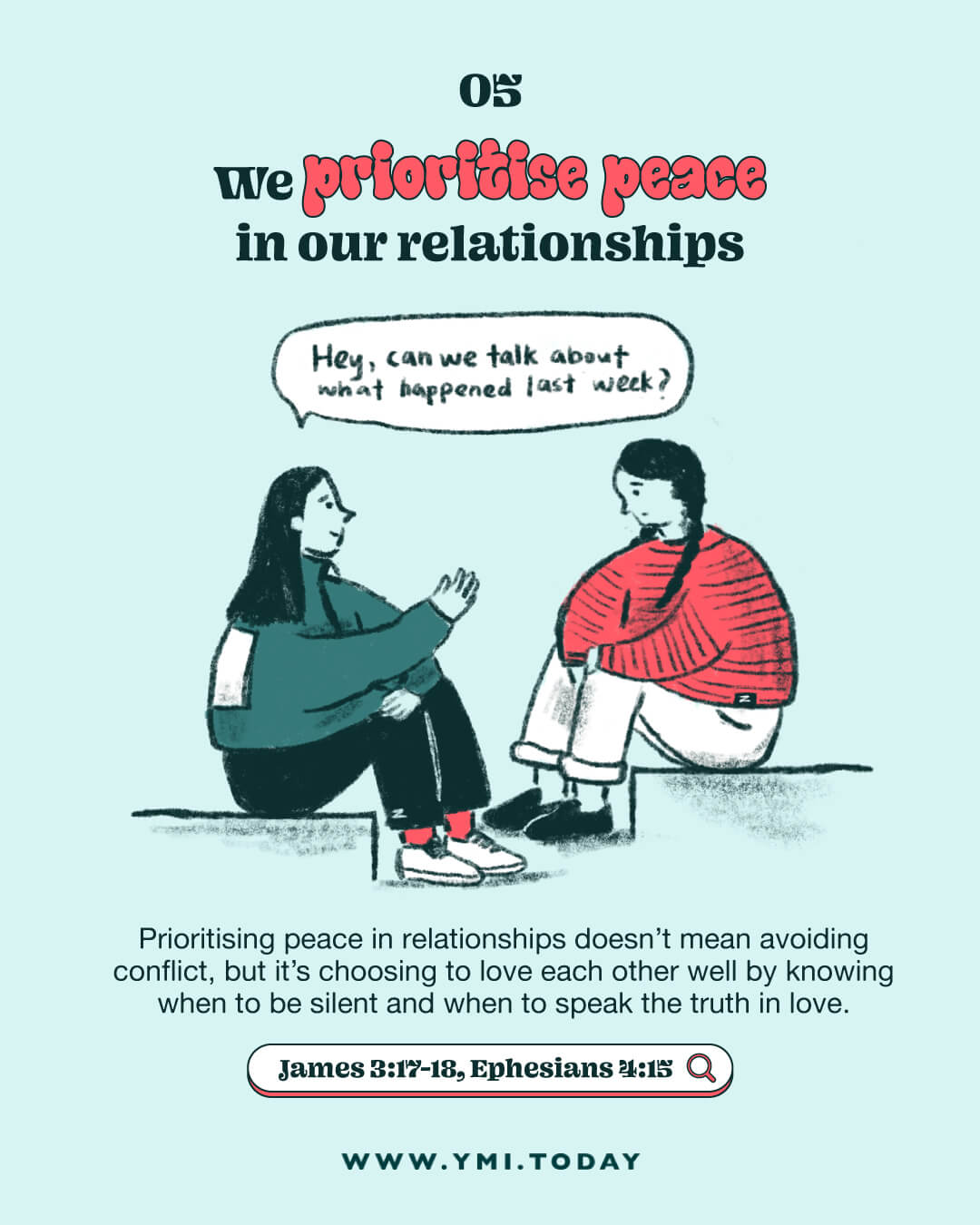5 Signs of Godly Wisdom
What does it mean to be wise in God’s eyes?
Perhaps we tend to think about it more with regard to our calling—is God calling me to this particular job/place/person? Are the steps I’m taking leading me towards God’s path for me?
While that’s always important to consider, there are many other ways for us to live by God’s wisdom. Thinking about godly wisdom means we have to consider the kind of worldly wisdom we receive and how it shapes our actions. Not all practical wisdom in the world is bad, but more often than not, worldly wisdom tends to focus on the self—our condition, status in life, what we can do on our own to improve our circumstances.
In contrast, godly wisdom always prompts us to think about the bigger picture—are our actions pleasing to God, and do they bless others and improve our relationships with them?
Here are just 5 signs we’re living by God’s wisdom.

1. We’re consistent in what we say and do
The Internet is littered with memes about how we often say things we won’t do. Like how “Maybe I’ll come”, or “I’ll try” really means “I can’t say no now, but most likely I won’t come”. Or how “We should do this again!” means “We’re probably never doing this again”.
We laugh because it’s relatable, and we’re guilty of doing it. But by regularly saying things we don’t mean or plan to do, we often end up unable to communicate well and foster trust, much less build deep and meaningful relationships. Just as we take certain people’s words to mean something and we count on them fulfilling their word, our words also have the same impact on others.
Being consistent in our words and actions shows that we live by a faith that is alive and active (James 2:14-16) and are people with integrity (Psalm 15:1-2, 4). Doing so enables us to truly love God and others in word and in deed.
This doesn’t mean that we can never be unsure about what we say, or that failing to do what we’ve said is unforgivable. Where we may have overestimated our capacity and overcommitted ourselves, we can make things right by admitting our oversight and doing what we can to avoid repeating the same mistakes.
And in situations where we don’t want to attend something but find ourselves wary of saying no, let’s remember that being honest is also being respectful, and that even as we decline, we can still graciously thank them for their kind invitation.

2. We admit humbly when we’re wrong
Earthly wisdom regularly nudges us to play up our achievements and hide our weaknesses, especially our mistakes. Whether it’s the way we do our presentations in school or at work, we tend to do everything to showcase the best of what we’ve done (which isn’t a bad thing!), but also make sure we’re not found out for whatever we’ve not done well, because it can put us under scrutiny and make people doubt our competence.
Yet when we start to think that it is always “wise” to hide these things, it could result in us becoming unwilling and unable to acknowledge when we’ve done something wrong, which makes it hard for us to take an honest look at ourselves and change for the better.
Doing so compromises the quality of the work we do and causes friction in our relationships at work, which can negatively affect those around us.
A crucial part of receiving wisdom from God is being able to admit where we fall short, so that things can be made right (Proverbs 28:13, 1 John 1:9, James 5:16). In God’s kingdom, there is no shame (Romans 8:1) in confessing to mistakes and shortcomings, knowing that He gives grace to the humble and lifts them up (1 Peter 5:5).
Wisdom is knowing the time and occasion to focus on what we’re excelling in and showcase that with a God-confidence, while also accepting a time for acknowledging mistakes and the things we can do to improve.

3. We show forgiveness and mercy
One possible reason we find it hard to admit when we’re wrong is that we may be unforgiving to begin with. Whenever someone makes a mistake or does something to slight us, do we tend to ruminate and keep records? Are we quick to judge and label the person based on the mistake?
Perhaps we may also subconsciously think that this is us being “wise”, because we don’t want to get “duped” again by someone who we think isn’t “trustworthy”. We may also (wrongly) think that being “forgiving” is being soft and giving people a free pass when they need tough love.
But when we ourselves are in need of mercy and forgiveness, and have experienced how wonderful it is to be shown grace and given a second (or third, or even fourth) chance, we know that being forgiving and merciful can lift a person’s spirit and encourage them to move forward and grow. As much as we appreciate and love being on the receiving end of mercy and forgiveness, would we also remember to extend them to others?
We are wise when we forgive because it comes from knowing how much we’ve been forgiven by our wise and all-knowing God (Matthew 6:14-15, Luke 7:47). Forgiveness doesn’t dismiss the consequences, nor does it immediately restore trust and intimacy, but it is crucial in keeping our hearts free of resentment and always ready to receive and extend God’s grace.

4. We’re willing to listen to and seek advice
What makes it hard to listen to or seek advice? For some of us, it could be that we’ve been surrounded by elders who have been dispensing advice non-stop, to the point that it’s become too much. Or we’ve received terrible advice before, and have now become wary. Or, perhaps we’ve completely set our hearts on doing something, and we really don’t want to hear any kind of objection, even if the objection may be wise and worth considering.
If your struggle is you’ve received too much “advice” your whole life or that you’ve taken bad advice before, remember that listening to advice doesn’t mean simply doing whatever people tell us; it’s about being open to reason (James 3:17) and understanding that people can bring different perspectives that we don’t have. While we may not take all the advice we receive, listening to them can potentially help us think critically and be better informed in our decision-making process.
When we’re making an important decision and we’ve become too biased or consumed, and are unable to think objectively, it is supremely wise to invite someone to help us assess our situation so that we can do the right thing. Scripture warns us that we’re in danger when we’re left to our own devices and we’re the only one who thinks we’re right (Proverbs 11:14, 12:15).
The famous verse, Proverbs 3:5, tells us to “not lean on our own understanding” but to trust in the Lord and acknowledge Him, and this includes seeking wise counsel from those He has placed in our lives to guide us (Proverbs 13:20, 15:22, 27:17).

5. We prioritise peace in our relationships
Often there is conflict in our relationships because we care a lot more about being right and asserting that we know better. But the book of James (3:17-18) paints a different picture of wisdom—one that isn’t consumed with being right and respected, but marked by a gentle, humble attitude that longs for people, including themselves, to be right with God and with each other.
Prioritising peace in our relationships doesn’t mean avoiding any hint of conflict and sweeping things under the rug. It means believing that it’s far more important to love the other person well than proving our point. It can look like refraining from saying things in the heat of the moment (e.g., when upset and angry), especially when we know it will be unhelpful and will only escalate the situation. It can also look like choosing to have an honest chat with the person about the things that bother us, instead of gossiping about it with someone else or keeping quiet to the point that it breeds resentment.
The goal isn’t to be proven right, but to experience the kind of peaceable wisdom that rejoices in being able to set aside differences in order to love well and help one another.
As with all aspects of the Christian life, living by godly wisdom is an endeavour that we can’t achieve by our own strength, but only by God’s grace.
It’s also comforting to know that godly wisdom isn’t something that’s mysterious and inaccessible to us—but is clearly revealed in His Word. This means we need not worry about how we can arrive at godly wisdom, but trust that He will equip us to do these things well for His glory as we walk in obedience.










We are all God’s children; some good and some not so good. He is in charge.